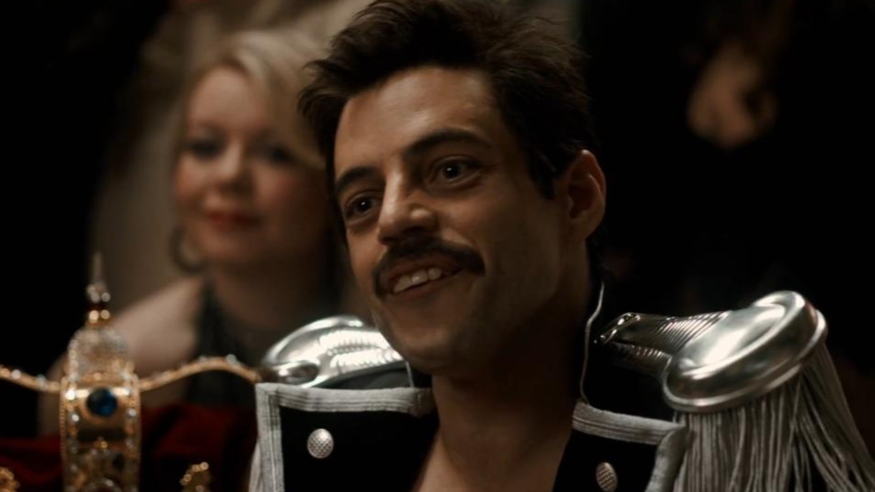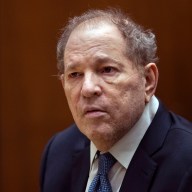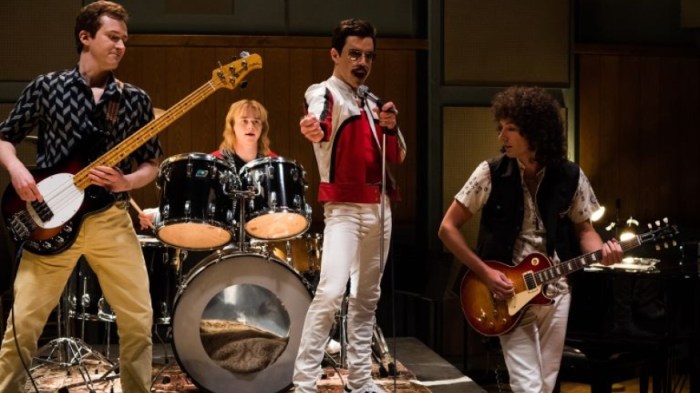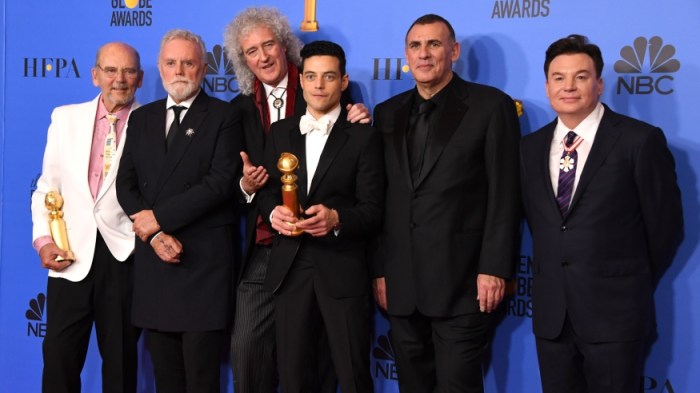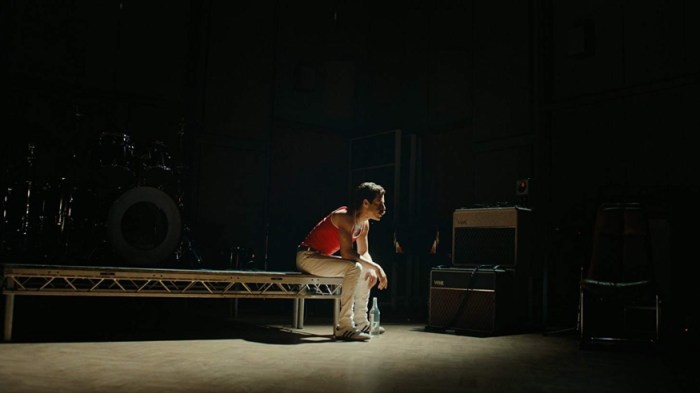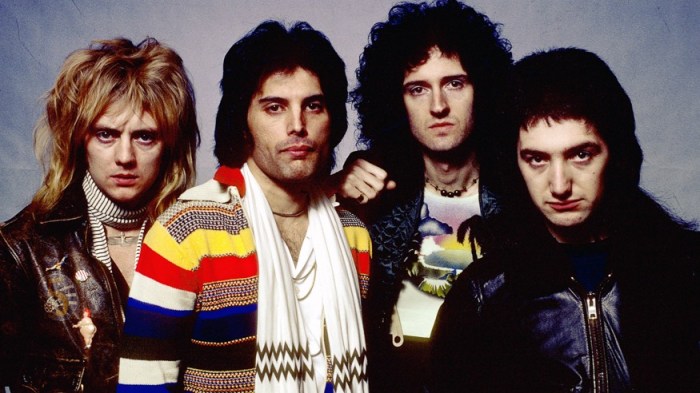Bohemian Rhapsody’s Gwilym Lee and Allen Leech have responded to the criticism of the biopic, which has been admonished by critics for the amount of artistic license taken with the life of Freddie Mercury.
When I asked Leech, who plays Mercury’s manager Paul Prenter in the film, about this criticism, he responded, “You can break Freddie Mercury’s life into a trilogy.”
“You are trying to bring to life the story of a man that to this day is still hailed as one of the greatest performers of all time. You are trying to tell that story in 2 and a half hours.”
“So you are going to have to have some artistic license. It is a biopic. It does show the creation of the band and his journey and it does only go all the way up to Live Aid.”
“So we had to use some artistic license to get in all of the elements that were affecting Freddie and the band at the time. It is not a documentary.”
“People want to see the stories, the stories that the band went through at the time, and they signed off on them, it is not something out of the blue.”
“The band believe that it is an accurate enough version that they can sign off on it. The fact that people are coming out and saying it isn’t accurate to the minute of Freddie’s life, it is hard pressed to do that.”
Lee, who plays Queen guitarist Brian May in the biopic, echoed Leech’s sentiments.
“You are trying to tell a small part, and Queen have such an incredibly legacy. That remains untouchable and they will always have that.”
“But we are trying to tell a small part of that in just 2 hours and 15 minutes. It was a really difficult task. I think we touch on every part of their story.”
“There has been criticism that it isn’t as salacious or extreme as it could have been in terms of portraying the sexual side of things and the lifestyle.”
“But you can’t say it isn’t in the film. It is there. But we don’t dwell on it. That’s not the main focus. Because that would be doing Queen a disservice. It would be to belittle them, it would be a reductive way of telling their story.”
“That’s not the main focus. The main focus is about their music and their uniqueness. They didn’t concern themselves with what critics thought. The didn’t concern themselves with being the coolest band in the world.”
“They just wanted to express themselves and give voice to anybody who maybe thought they didn’t belong. And I think that is the main purpose of the film.”
“From day one it was always going to be a PG-13 film. Because Queen are about engaging with the masses and speaking to a huge audience.”
“They are unique in that sense, because they could be playing to hundreds of thousands of people and make it seem as though they are speaking to you as an individual. So we wanted it to be seen by as many people as possible.”
“The film finishes with a celebration of Freddie life’s and Queen’s music. And, in the UK, parents are going with young teenagers to share this experience. They are introducing their children to the music they grew up with and Queen.”
Like Lee, Leech insists that rather than being a completely faithful account of the life and career of Freddie Mercury and Queen, it is a celebration of their music and what they achieved.
“I feel that this is a celebration of Freddie’s life and the music he has created. Everyone I know who has been to see it at the cinema has just come out feeling so good. It is a feel-good movie.”
“That’s exactly what it was at the London premiere with 7,000 people. You come out of there seeing the creation of the band, how they went through it, and you also get a rock concert.”
“It is actually two things in one. If you want complete accuracy, watch this great documentary called ‘The Great Pretender’.”
“Bohemian Rhapsody” is in cinemas on November 2.

